Let's Talk About Sex - Elementary Edition
- Sep 28, 2018
- 11 min read

In the eighth episode of the sixth season of Elementary (titled “Sand Trap”), Sherlock returns home after a few months of doctor-imposed vacation and is met with a heartfelt hug from Joan. It’s beautiful. And worth re-watching on a loop.


Aww.
This alone makes their relationship noteworthy—the 19th century original stories with their social norms and the other adaptations of this supposed “high functioning sociopath” don’t come close to touching the rapport that these two have achieved—but I’m actually not here to talk about how wonderfully solid their partnership is. At least, not in the way you might expect. No, today I want to dive into the conversation that takes place after that hug:
Joan: I have a houseguest.
Sherlock: You’ve taken a lover in my absence! That’s excellent. I can’t wait to meet him. Or her. Or is it them?
Joan: No, I have not taken a lover.
Rather, Joan reveals that her houseguest is a young woman named Kelsey, pregnant with her first child and willing to let Joan adopt the child in her stead. The revelation (for Sherlock if not the viewer) that Joan wants to be a mother helps overshadow the misunderstanding that happened just seconds before, but not erase it. That moment was the first and so far only time that I’ve heard a character speak so honestly about gender on television; so naturally. This wasn’t a dramatic coming out scene or an otherwise big reveal that the season had been building towards (each of which are important in their own ways). It definitely wasn’t treated as a joke. Rather, it was the simple act of being inclusive. Even after six years of knowing Joan Sherlock still refuses to assume her sexuality and he acknowledges that with words. Listening as a variety of pronouns were thrown out on a major television channel, on an otherwise average Monday night… it occurred to me that this wasn’t pandering. No gimmicks or brownie points. Sherlock simply came in, deduced that Joan had a partner, and was careful not to misgender them.
Holy shit.

This is just one example of how masterfully Elementary has woven gender and sexuality into its storytelling. It’s also one of the (many, many, many) reasons why I think it’s the best of the modern adaptations. Holmes and Watson led queer lives in the original canon—and here I mean “queer” in all its various definitions. Doyle’s world is one wherein two upstanding late 19th century gentlemen live in domestic bliss… even while one of them is married. There are strange chemical experiments going on in the corner and even stranger things hidden under the butter dish. Both outcasts and kings show up on their doorstep, street urchins are utilized as spies, and man’s best friend always proves his worth by the end of a case. They’re the kind of stories where a woman can dress in drag in order to trick the greatest detective who ever lived—and succeed. They’re also the kind of stories where, yes, there’s an intimacy that has fans wondering what really happened between Holmes and Watson behind closed doors.
Subtext is what drives the canon, yet despite the fact that a romantic relationship is never an overt part of these stories, everyone (supposedly) knows they’re in love. The Holmes/Watson relationship is old hat—a hundred and thirty years in the making. In some ways it’s more subversive to make their relationship platonic without the goddamn queer baiting, especially when you’ve changed Watson into a woman. When was the last time we had a man and a woman living happily together without secretly being in love? Without the heteronormative assumptions? Without the expectation that they’ll fall into each other’s arms by the end of the series? Never, that’s when. Elementary is doing important work when it comes to undermining gender roles—upholding the ‘queer’ in the canon—and that’s due in large part to how sex is treated on the show. How do you keep people from assuming that Sherlock and Joan are secretly pining for each other? By making sex explicit between them, with the added bonus of normalizing it for the viewer.
Kelsey: So, you swear you and your partner never slept together?
Joan: No. Never.
Kelsey: And you're not a lesbian?
Joan: No.
Kelsey: Sorry, it's just—he's hot, you're hot. You'd make a great couple.
Joan: You would be surprised how often we don't hear that (6.08).
Moments like the one previously mentioned aren’t rare. It’s not just that Sherlock uses “them” pronouns (that’s great), but that he brings up Joan having a partner in a natural, positive way. We see glimpses of this gentle, low-key acceptance right in the pilot episode when Joan enters the Brownstone to a bit of a surprise:
Joan: There was a woman leaving just as I got here. Who was she?
Sherlock: Acquaintance.
Joan: Did she get you high?
Sherlock: About six feet.
[It’s here that Joan and the audience notice a ladder with two sets of handcuffs on it]
Sherlock: Full disclosure? I actually find sex repellent—all those fluids and odd sounds—but my body and brain require it to function at optimal levels. And so I... “feed” them as needed.

It’s day one and we’ve already been reminded that yes, adults have sex and no, it’s not something they need to hide. To say nothing of the additional representation. I’m not on the ace spectrum and don’t presume to speak for anyone in the community, but it seems pretty significant that Sherlock admits to being sex-repulsed on a major TV show. He later reiterates, “You’re well aware that I view sex as an exercise” (2.15). Our society emphasizes romantic love over every other type of relationship and if you haven’t managed to settle down and achieve 2.5 kids by your mid 30s… well there’s something wrong with you, isn’t there? There is something ‘wrong’ with Sherlock in the sense that he exists outside of society’s expectations and frequently does things that others would consider abnormal. But this—through the reveal’s casual nature—is presented as normal. To be ace is to lack sexual attraction, but some people, like Sherlock, still have sex for a variety of reasons. There’s nothing complex or confusing when it’s presented like this and suddenly Sherlock can be an example for many to point to in the community. More importantly, Joan doesn’t bat an eye. She doesn’t challenge Sherlock on his disgust or his activities. She’s far more concerned with whether this woman gave him drugs than a good time in bed.
And from there we’re given a show that’s filled to the brim with sex, sexuality, and gender identities of all sorts. Elementary features sex shops, sex trades, sex trafficking, sex offenders, sex dolls, sexual harassment, cheating, stalking, pedophiles, cam vids, crimes of passion, a financial dominatrix, and a mathematician who prefers to work with his shirt off. (It’s just a part of his process.)
Gay characters are frequent throughout the show, whether it’s a quick reference to how two partners got help adopting their daughter, a woman using sex with another woman as her alibi, or a grieving man proving invaluable in solving the death of his husband (1.17, 6.17, 6.20). Our iconic housekeeper, Mrs. Hudson, is trans. Sherlock has a long and wonderful relationship with an autistic woman, Fiona, for whom he gives up all his other partners, despite personally being okay with opening the relationship up. Threesomes are referenced as casual possibilities rather than horrifying, deviant acts—or worse, a clear means for a man to dominate two women instead of one (1.16). Sherlock has “arrangements” with women that are incredibly respectful, wherein both parties know exactly what they want to get out of the encounter (be it the sex, money, or various experiments) and consent is always the top priority (1.14). Indeed, next season is set to challenge the presumed setup of these arrangements, encouraging Sherlock to question whether he wants a deeper relationship with one of the women he has, up until this point, merely called on for sex. I personally can’t wait to see how he and Athena might fit.
Kinky sex? Sure! “Were you in a fight, or were you having sex? The two aren't mutually exclusive” (4.10). We have an acknowledgement that sex can be a commodity as well as an act of love—Sherlock makes the “small confession” that he finds anti-prostitution laws “rather Victorian” (1.08). The reminder that objects and situations presumed to be about sex, like buying a sex doll, might have more to do with a desire for companionship (6.16). Sherlock is even willing to use sex as a deduction tool—sleeping with a suspect to test the stiffness in her rotator cuff… and reminding Joan that she can sleep with her too to confirm the results (2.15)—as well as a weapon when necessary, seducing his brother’s ex-fiancé in order to prove that she was only after his wealth (2.07). During an early episode of season one Joan is eager to meet Sherlock’s father while Sherlock himself is insistent that he’ll bail on the dinner they’ve planned (and he does, which is an excellent way of drumming up interest in John Noble’s character before he actually arrives at the beginning of season four). The man who Joan meets—under the assumption that he’s Mr. Holmes—immediately wants to know “How’s the sex?” between them. “The sex. The shagging,” he insists, briefly setting up the implication that the esteemed Mr. Holmes is as free with his personal questions as his son is. Of course, this is merely an actor hired to play a role, giving Joan the dinner she so wanted to have, but it nevertheless showcases Sherlock’s willingness to bring sex into even the most sacred conversations, to say nothing of the nudge-nudge-wink-wink it sends to the audience. Because Sherlock and Joan are not having sex. They’re never going to have sex, despite the fact that, as our latest finale acknowledges, they openly love one another. But that love is platonic and emphasizing that every once in a while is important.

Joan has plenty of sex too, of which Sherlock is endlessly supportive. I can think of at least three episodes with very little effort—1.02, 3.03, 3.13—where Sherlock deduces that Joan has had sex and, regardless of whether he’s correct in his deductions, reminds her that he’s happy for her. If he’s at all upset (and that’s rare) it’s because Joan’s choice of partner has a negative impact on their work, such as when she sleeps with a detective they hoped would work with them after Marcus Bell leaves the force (6.15). “We should have discussed it first!” Sherlock grouses after the poor man has left and Joan retorts that she’s “not gonna call you every time I’m going to have sex.” Sherlock’s thought process is fantastic: “If you’re worrying about inconveniencing me, don’t.”
In regard to her relationship with Andrew he asks questions most people wouldn’t even dare voice: “Or would you be happier without him? Alternatively, with him as an occasional sex partner and confidant? With him when in the States and free to pursue other interests when not? There are any number of arrangements. All you need to do is find one which is true to your nature” (3.07). Joan is reminded that she has the freedom and the power here. Anything she might want is open to her, and damn what society might think of it.
The only time Sherlock and Joan do seem uncomfortable with sex, funnily enough, is when Joan hooks up with Sherlock’s brother, Mycroft. Notably Sherlock never plays into the possessive family member trope and insists that they can’t be together. He’s really only uncomfortable because… well, it’s his brother. And his best friend. And he has complicated relationships with both. “You’re an adult,” he tells Joan. “You can do as you please. Might even be good for you [the sex, that is]. Clear your mind” (2.01). He’s both petulant and oddly supportive. Responding with “oh my god” at the realization that they’ve had sex while, a few seconds later, wanting to know if it will be an “ongoing arrangement” so that he can “plan accordingly” (2.07). And it’s hilarious. Later on, when Joan takes Mycroft’s side in a fight Sherlock throws out this...
It’s a low blow, but one that reads as perfectly sibling-like rather than borderline sexist. Because we know these two characters, we know how they respect one another, and sex is such a blasé part of their lives that Joan can easily shut Sherlock down in one breath and continue theorizing about the case in another.
What’s notable about all these examples is how accepting everyone is regarding preferences, kinks, and various sexual partners. Even when there is a joke it’s never at the minority’s expense. When the partner of a psychologist reveals that yes, she ranted about work just like everyone else, the most popular rant turns out to be about how one of her patient’s “preferred sex object was a shoe” (6.04). The punchline, “It wasn’t me” invites a laugh, but later reflection of the situation is oddly supportive. Sherlock claims that “The primary reason that psychiatric records are kept confidential is that many self-described sane people are judgmental idiots. I myself am not. For example, I fully support this man’s quest to have sex with as many shoes as possible.” It’s silly, but the underlying message remains: if it’s not hurting the person in question or anyone else, why should we care about something that’s supposedly abnormal?
In fact, it’s notable how often the term “partner” is used throughout the show. It—along with “lover”—are consistently used to describe peoples’ significant others, ensuring that no assumptions are made about either their gender or the relationship. We see this choice take on more dimension as Sherlock and Joan refer to each other as partners, blurring the line between romantic attachments and relationships that are just as deep, only without the sex. Sex, the show says, is not and should not be seen as an indicator of how much people love one another. As we learn in the season six finale (notably written under the assumption that this would be the show’s final season) Joan and Sherlock aren’t only partners, they’re “two people who love each other” (6.21). They have the kind of relationship where they never even consider getting into bed together, but Sherlock leaves everything in his will to Joan… and then immediately donates it instead because he knows her that well (6.18). Elementary normalizes “partner,” expands its definition, and entirely destroys any assumptions regarding what sort of relationship that word is supposed to represent.

Have we really stepped back and considered this? How fantastic this setup is? Here is a woman who is both American and Chinese, allowed to embody her heritage even as she lives in the modern age. She’s been a surgeon, a sober companion, and now works as a consulting detective—all high-powered jobs dominated by men. When she realizes that yes, maybe she does want to be a mom (undermining the long-held trope that the working woman can’t be too feminine) she actively works to make that a reality, choosing to adopt and raise her (still hypothetical) child alongside her work partner and the tortoise they dress up in wool cozies. This work partner, a British, asexual man who nevertheless has healthy relationships with numerous women, accepts his partner’s choices with barely a blink. She wants to be a detective too? Excellent. Learn how to break a man’s nose with a single punch? Let me teach you. Have a child? Guess I’m Uncle Sherlock then.
I adore Elementary. More than I can say. Because it’s the only adaptation I’ve found that’s brave enough to actually bring Holmes and Watson’s quirks into the modern age. They solve cases the police can’t precisely because they think and act outside of social expectations, but people seem to think this means that Sherlock should be rude and abusive all the time (Sherlock) or have that One Instance where he dresses in drag (Sherlock Holmes). But that’s so far off the mark I can’t even see how we’re aiming at the same target. The original Holmes and Watson are two brilliant men living together in an age where that devotion reads as deviant, doing weird but ultimately useful things in their flat and going out of their way to help others. How do you modernize that? By creating Elementary.
As Sherlock says, “Conventional is the enemy of interesting” (6.08).
Image Credit:
Image #1: https://www.tvguide.com/news/cbs-renews-amazing-race-elementary/
GIF #1: http://halloawhatisthis.tumblr.com/post/175036688918/watson-i-have-returned
GIF #2: http://rebloggy.com/post/sherlock-holmes-elementary-joan-watson-joan-x-sherlock-
elementaryedit/67725168075
Image #2: http://www.digitalspy.com/tv/elementary/review/a408968/elementary-pilot-recap-is-the-us- sherlock-reimagining-any-good/
GIF #3: http://magda-lennah.tumblr.com/post/170433256982
Image #3: https://www.tvequals.com/2016/01/29/elementary-alma-matters-review-season-4-episode- 10/
GIF #4: https://arin-arryn.tumblr.com/post/175271386461/are-you-seriously-keeping-score-it-doesnt- matter
GIF #5: https://thebookwormexxtraordinaire.tumblr.com/post/176856266970/why
Image #4: http://ace-trainer-risu.tumblr.com/post/178192130546/elementarystan-chicago-tribune-how- clothes-make
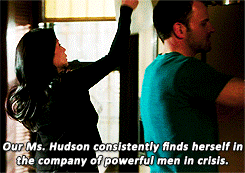
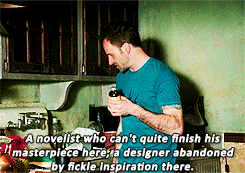

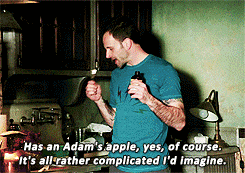
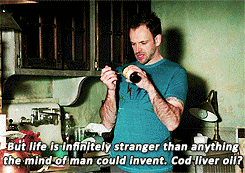

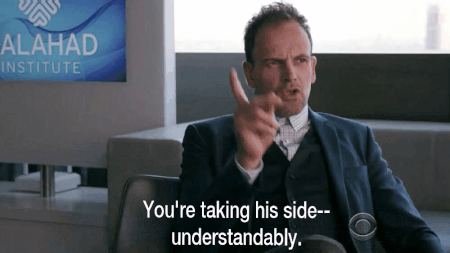
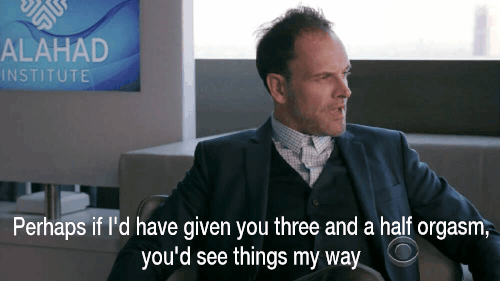


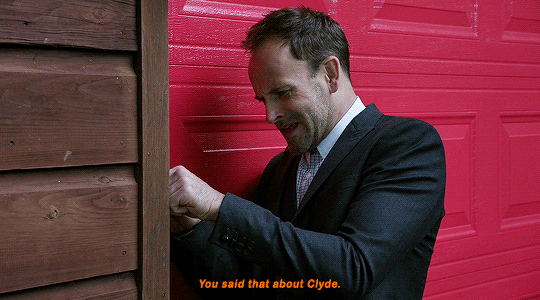


Unlock your betting journey with Reddyanna.club – your trusted platform for secure sports and casino play. Quick and easy Reddy Anna Book Club Login Registration lets you join in minutes and enjoy 24/7 access to real-time betting. From live cricket to exciting casino games, everything is just one click away. Want non-stop winning opportunities? Reddy Anna 777 is designed for serious players looking to win big. With fast deposits, safe withdrawals, and round-the-clock support, this is your go-to platform for safe and rewarding gameplay. Join now and turn every bet into a winning move!
Struggling with academic tasks in Australia? Our Assignment Help Australia service offers expert support to students in Sydney, Melbourne, Brisbane, Perth, and across the country. We provide top-quality assistance across a wide range of subjects including business, law, engineering, nursing, IT, and more. Whether it's an essay, research paper, case study, or technical project, our qualified writers deliver plagiarism-free, well-structured content tailored to Australian university standards. With 24/7 support, timely delivery, and complete confidentiality, we help you achieve academic excellence with ease. Click the link above to get started today!
If you're searching for the Best Forex Trading Platform in India, Winprofx stands out as a top choice for both beginner and advanced traders in 2025. With a user-friendly interface, fast trade execution, and access to a wide range of currency pairs, commodities, and CFDs, Winprofx is designed to meet the needs of Indian forex traders who want reliability and performance. What truly sets Winprofx apart is its strong focus on trader education and transparent operations—offering real-time market analysis, live webinars, and expert mentorship that helps users understand the forex market better and make more informed decisions. It supports multiple payment options suited to Indian users, including UPI, bank transfers, and wallets, ensuring quick deposits and withdrawals without hidden fees. The…
Love the respect and understanding in this story! 💬❤️ Just like how clear communication matters, Paharganj call girls offer genuine connection without assumptions or judgments. 🌟✨ Real respect and care make all the difference! 🙌💖
Love how you’re keeping it real and open! Honest talks like these are refreshing—just like finding trusted company with Delhi Escorts. 🔥💬 #RealTalk #DelhiEscorts